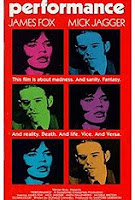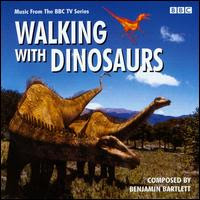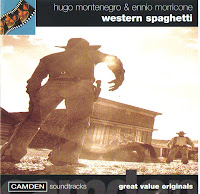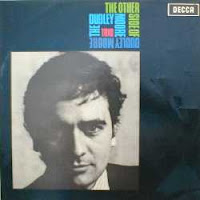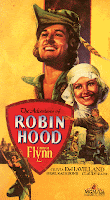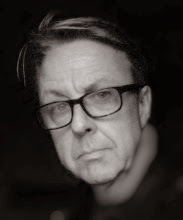 Universal Music TV is set to release a stunning 3CD collection to mark the 25th Anniversary of Blade Runner on December 10th, 2007. Featuring previously unreleased music from the film, bonus tracks and a brand new album of Vangelis material inspired by the film with sleeve notes written by Ridley Scott.
Universal Music TV is set to release a stunning 3CD collection to mark the 25th Anniversary of Blade Runner on December 10th, 2007. Featuring previously unreleased music from the film, bonus tracks and a brand new album of Vangelis material inspired by the film with sleeve notes written by Ridley Scott.
Ridley Scott’s Blade Runner, with its apocalyptic depiction of LA in 2019, has become one of the most celebrated sci-fi releases of the 20th century. It’s one of those films where all of the constituent parts - the set, the lighting, the characters, the sparse dialogue and of course the music - work uniquely together to produce a cult masterpiece.
The music has always been a key element of Blade Runner and there have been various versions of the soundtrack over the years, some ‘official’ and some bootlegs. But they have all either been incomplete or have suffered from poor sound quality, until now. Blade Runner Trilogy: 25th Anniversary is a 3CD set which - for the first time - puts all the pieces together, providing the complete music from the film and a lot more besides.
CD 1 features the original and remastered soundtrack as it first appeared in 1994, twelve years after the film was released. The second CD contains all the remaining music from the film that did not appear on the original 1994 soundtrack, plus two bonus tracks ("One Alone" and "Desolation Path"). None of this material has been released before.
The third and final disc will be of real interest to Vangelis fans - as it contains an entire album of newly written material composed by Vangelis to mark the 25th anniversary of Blade Runner. The music is strong and flowing, and retains the dark, atmospheric sense of the original score. There are some intriguing spoken word contributions too, from Ridley Scott, Roman Polanski, Oliver Stone and a host of distinguished actors, personalities and world dignitaries.
Full track listing details:
CD 1: Blade Runner Original Soundtrack Album
Track 1: Main Titles (3': 42")
Track 2: Blush Response (5': 47")
Track 3: Wait For Me (5': 27")
Track 4: Rachel’s Song (4': 46")
Track 5: Love Theme (4': 56")
Track 6: One More Kiss, Dear (3': 58")
Track 7: Blade Runner Blues (8': 53")
Track 8: Memories Of Green (5': 05")
Track 9: Tales Of The Future (4': 46")
Track 10: Damask Rose (2': 32")
Track 11: Blade Runner (End Titles) (4': 40")
Track 12: Tears In Rain (3': 00")
CD 2: Blade Runner Previously Unreleased and Bonus Material
Track 1: Longing (1': 58")
Track 2: Unveiled Twinkling Space (1': 59")
Track 3: Dr. Tyrell’s Owl (2': 40")
Track 4: At Mr. Chew’s (4': 47")
Track 5: Leo’s Room (2': 21")
Track 6: One Alone (bonus track) (2': 23")
Track 7: Deckard And Roy’s Duel (6': 16")
Track 8: Dr. Tyrell’s Death (3': 11")
Track 9: Desolation Path (bonus track) (5': 45")
Track 10: Empty Streets (6': 16")
Track 11: Mechanical Dolls (2': 52")
Track 12: Fading Away (3': 32")
CD 3: BR 25
This is the album with the new music, composed by Vangelis for Blade Runner’s 25th anniversary.
Track 1: Launch Approval (1': 54")Spoken word: Scott Bolton, Bryce Bolton
Track 2: Up and Running (3': 09")Spoken word: Sir Ridley Scott
Track 3: Mail From India (3': 27")Ney: C. Lambrakis
Track 4: BR Downtown (2': 27?)Spoken word: Oliver Stone, Akiko Ebi, Cherry Vanilla
Track 5: Dimitri’s Bar (3': 52")Spoken word: Akiko Ebi, Oliver Stone, Saxophone: Dimitris Tsakas
Track 6: Sweet Solitude (6': 56")Saxophone: Dimitris Tsakas
Track 7: No Expectation Boulevard (6': 44")Spoken word: Rutger Hauer, Wes Studi, Bhaskar Balakrishnan (Executive Director of the Asian Heritage Foundation), Shobhana Balakrishnan, Laura Metaxa, Sir Ridley Scott, Zhao Yali (Ambassador of the People’s Republic of China to Cyprus)
Track 8: Vadavarot (4': 14")Spoken word: Irina Valentinova, Florencia Suayan Tacod
Track 9: Perfume Exotico (5': 19")Spoken word: Edward James Olmos
Track 10: Spotkanie Z Matka (5': 09")Spoken word: Roman Polanski reciting excerpts from the poem "Spotkanie z Matka" by Konstanty Ildefons Gaczynski
Track 11: Piano In An Empty Room (3': 37")
Track 12: Keep Asking (1': 29")Spoken word: Bryce Bolton
All music composed, arranged, produced and performed by Vangelis.
"One of the great experiences of my directing career was working on the music for Blade Runner with Vangelis at his Marble Arch studio in London where he would perform rough demo film cues for me on the fly, obsessing over every detail and capturing every moment with exceptional beauty...the final result took us far beyond my expectations." - Ridley Scott, sleeve notes
This CD release ties in with some significant DVD products launched to coincide with the 25th anniversary. On December 3rd, 2007 a 5 DVD set ‘Final Cut: Ultimate Collectors Edition’ is released, which contains all 5 versions of the film, plus interviews, a documentary on the making of the film and a letter from Ridley Scott.
 Tonite Let's All Make Love In London is the soundtrack to Peter Whitehead's 1967 documentary of the swinging-60's London scene. It is notable for its psychedelic soundtrack and a who's who of 60's cultural icons including Michael Caine, Mick Jagger, Edna O'Brien, Julie Christie and a wonderfully fruity David Hockney.
Tonite Let's All Make Love In London is the soundtrack to Peter Whitehead's 1967 documentary of the swinging-60's London scene. It is notable for its psychedelic soundtrack and a who's who of 60's cultural icons including Michael Caine, Mick Jagger, Edna O'Brien, Julie Christie and a wonderfully fruity David Hockney.





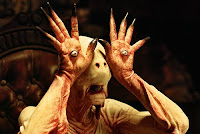



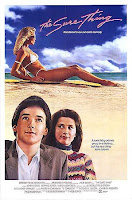
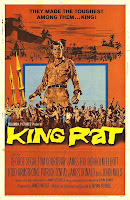





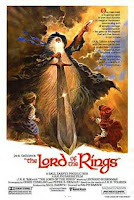.jpg)
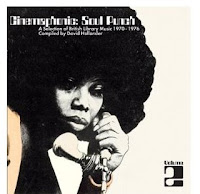

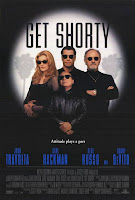
(1999).jpg)



